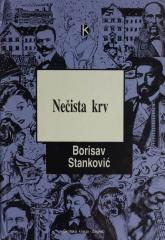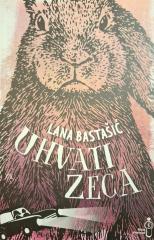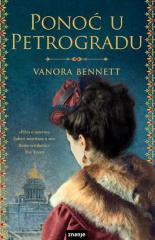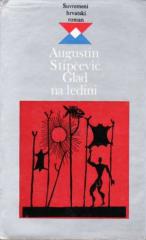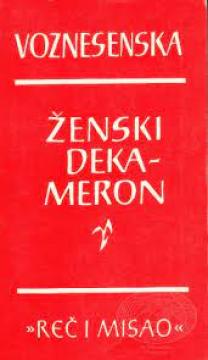
Ženski dekameron
Ženski dekameron je roman inspiriran strukturama Boccacciovog "Dekamerona", smješten u suvremenu sovjetsku stvarnost. Radnja se odvija u rodilištu u Lenjingradu (današnji Sankt-Peterburg) tijekom 1980-ih.
Deset žena različitih godina, društvenih slojeva i životnih priča nađe se zajedno u bolničkoj izolaciji zbog sumnje na zaraznu bolest. Kako bi skratile vrijeme i prebrodile strah, odluče si međusobno pričati priče – svaka po jednu dnevno.
Kroz njihove ispovijesti razotkrivaju se problemi tadašnjeg sovjetskog društva: ljubav, brak, izdaja, majčinstvo, gubitak, prostitucija, religiozna potraga i borba za osobnu slobodu. Svaka priča odražava borbu žene za identitet i dostojanstvo unutar sustava koji često negira individualnost i emocionalne potrebe.
Likovi su raznoliki – od studentica i kućanica do poslovnih žena i umjetnica – i kroz njihove sudbine Voznesenskaya istražuje univerzalne teme ženske snage, patnje i nade. Premda suočene s teškoćama, junakinje pokazuju otpornost, solidarnost i vjeru u bolje sutra.
Roman je pisan jednostavnim, ali izražajnim stilom, kombinirajući realističan prikaz svakodnevnice s optimizmom i suosjećanjem. "Ženski dekameron" nije samo zbirka priča o ženama, već i svjedočanstvo o vremenu, društvu i snazi ženske duše.
Im Angebot sind keine Exemplare vorhanden
Das letzte Exemplar wurde kürzlich verkauft.
